The truth about the deficit in the USSR
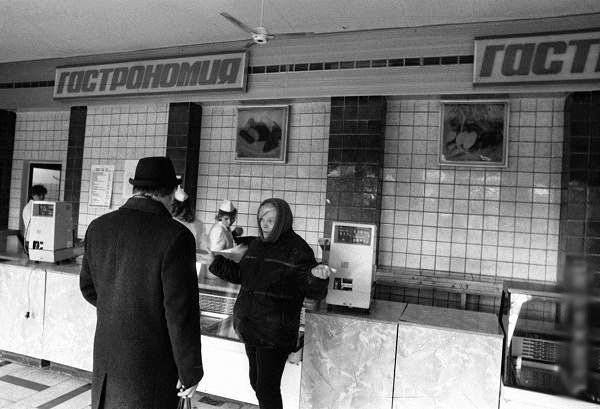
“The Union of Soviet Socialist Republics is a country that the whole world looked to with hope. A country in which the people defeated their capitalist exploiters and sighed deeply, marching from socialism to communism and carrying the red banner of democracy to other, still capitalist-slave countries.

What do we hear everywhere?
In the Soviet Union there was nothing: neither the products in the store, nor the clothes, nor you furniture with electronics; everyone lived half starving, walked in rags for 20 years, and at the same time they smiled and had fun, and everything came from the fact that the people were naive and gullible, and believed in the imminent arrival of a brighter future.
So many liberals are now talking on TV and other media, and this is the basic idea imposed on the Internet by the younger generation. Yes, and another "bloody Stalin" and "damned GeBnya" (KGB). Everything is bad, everything is terrible ...
But is it? Is it really a huge country, with gigantic deposits of resources and a vast territory (still 1 / 6 part of the land), consisting of unusually different, but fastened together history peoples, could live hungry and cold, almost worse than all countries in the world?
Even if one eye to read the question and think half of the head, the answer is one: NO! COULD NOT.
Then how did it arise, so exciting for everyone today, the deficit? We will try to find the answer to this question. I want to say at once that in this article I will analyze the shortage of food only, otherwise its size will exceed all possible expectations.
USSR 6 to 1.
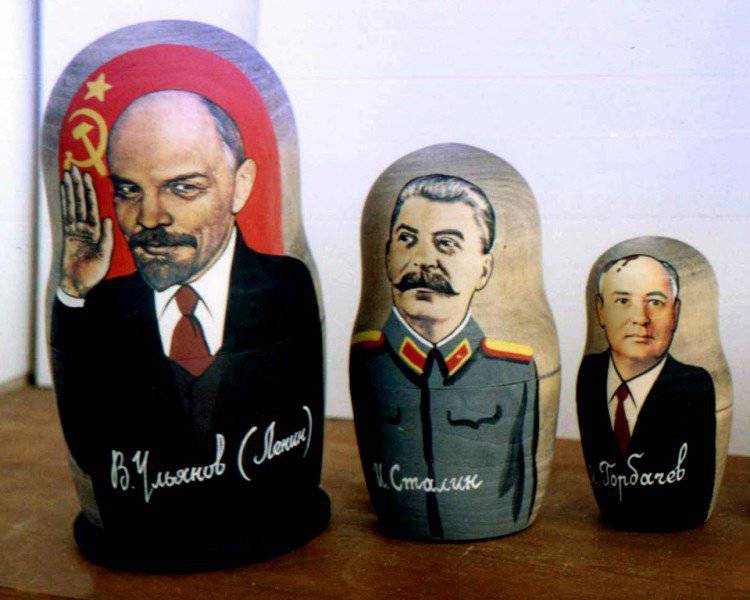
When today, our esteemed liberal historians, consider the issue of the deficit of the times of the USSR, they mix all the 70 years of Soviet power in one undisputed pile. Such a small manipulation of consciousness. All this is being done in order to demonize communism, the planned-mobilization economy and everything that it carried with it, while capitalism is partially justified — it is supposedly bad in many ways, but communism is even worse. This approach is fundamentally wrong, and in my opinion, and immoral, as people, in this case, are mistaken for idiots.
We, in order to reveal the essence of the economic problems of the USSR, need to understand what the great and mighty Soviet Union was. The thing is, and this is exactly what is being silenced today, that in different years there were fundamentally different Soviet Unions. For clarity, it is enough to compare the USSR of Stalin and the USSR of Gorbachev; here you don’t even need to add anything. But if the Soviet Unions are different, then the economy (with all its problems) is also different in them, which means that the deficiencies in them are different. Therefore, we will move from the smallest to the largest, starting with the post-war Stalin rule.
Post-war years.
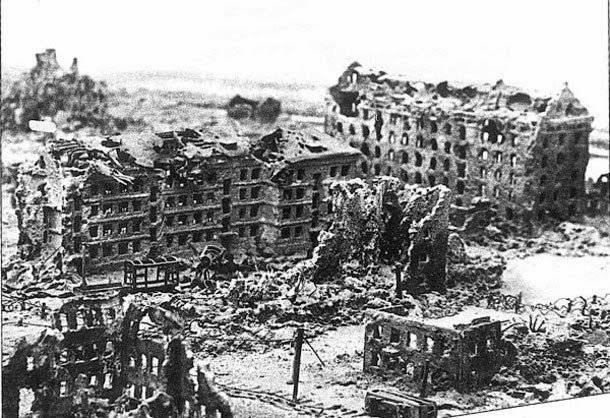
The terrible war for the whole of Russia is coming to an end. The war, which according to the estimates of analysts was carried away, only killed, 26,6 million Soviet citizens; a huge part of the country lies in ruins; people endured the things that no people had ever experienced.
Meanwhile...
The United States and Britain, having failed to finish the war, by 1 in July 1945 are planning to attack Russia themselves (see Operation Unthinkable), reorganizing the captured Germans under their command and forcing the USSR to redeploy their troops from the west to the Yalta conference east to attack unwilling to surrender to Japan.
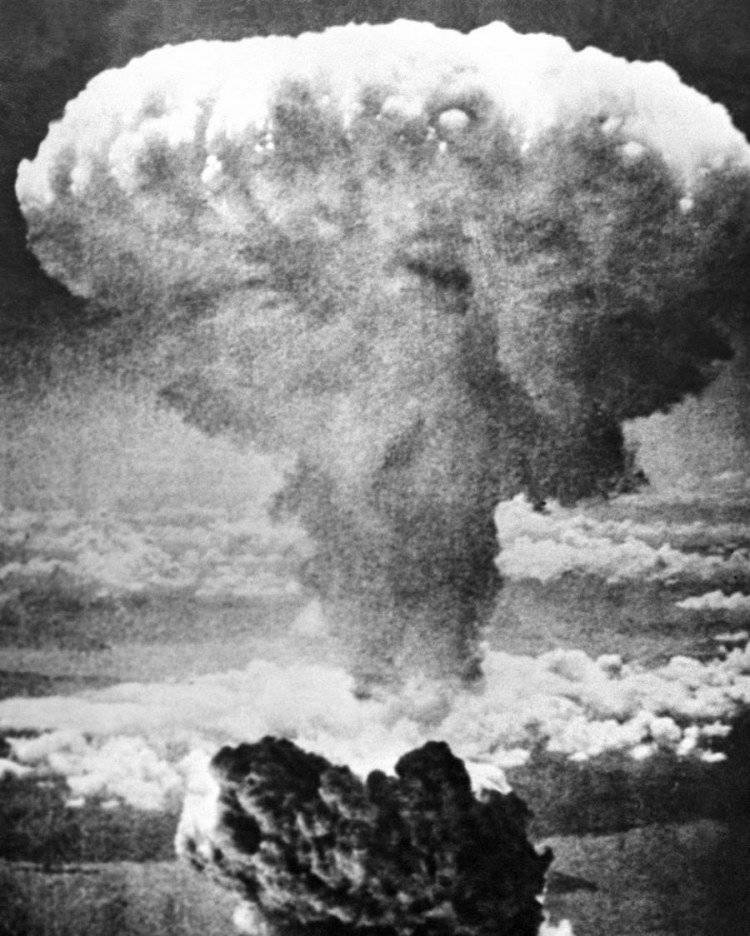
Plans for a US nuclear attack on the USSR:
1) Totality - December 1945
2) Chariotir - May 1948
3) Fleetwood - September 1948
4) Operational Plan "SAH EVP 1-49" - April 1949
5) Trojel - January 1949
6) Dropshot - December 1949.
What does this mean? This suggests that the USSR could not weaken its military-industrial complex, to mobilize power in other sectors and restore the destroyed country. At that time, the United States had a nuclear weaponwhich they have already successfully tested on civilians in Japan, in the USSR the atomic bomb was created and tested only by August 1949 ...
It was in such conditions that the post-war period began. The country had to re-reach the pre-war level. The task of the fourth five-year plan was put by Stalin: “to restore the affected areas of the country, to restore the pre-war level of industry and agriculture and then to exceed this level in more or less significant dimensions”.
There is a shortage of certain goods in the country, but, most importantly, the shortage of basic foodstuffs has been eliminated. By December, 1947 will cancel the card supply system (in England, for example, the card system was canceled only in 1954). Starting in 1947, prices in the country are falling annually. The country is regaining its pre-war achievements.
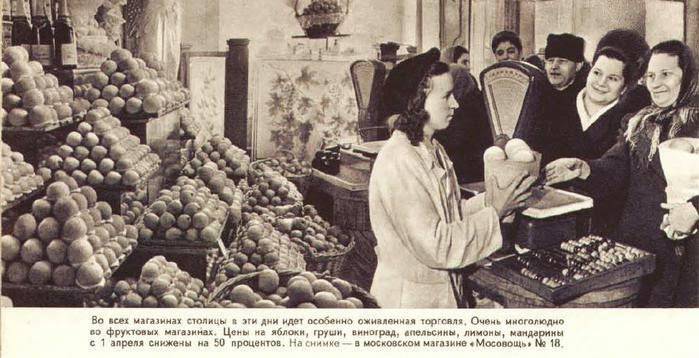
Thaw.
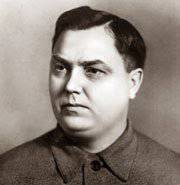
Gm Malenkov. 1902 - 1988.
Board: March 1953 — September 1953
5 March 1953, dies I.V. Stalin. At the head of the state rises GMMalenkov. He pursues a peasant policy: he permits the increase of household plots 5 times, and reduces the land tax by half. This gave good results: the village began to give 1,5 times more products. “Malenkov came, ate blinks,” said the peasants. It should be noted that by the 53 year, more than half of the country's population live in villages.

In November 1953, Malenkov delivers a speech in which he condemns bribery and the moral and social decay of the workers of the party apparatus. On this occasion, Khrushchev stated: “all this is of course true, George Maximilianovich. But the device is our support. " I think everyone understands the meaning of his words.
Already in September of the same year, Nikita Sergeevich Khrushchev rises at the head of the state, and everything begins with this ...
The great "corncob".
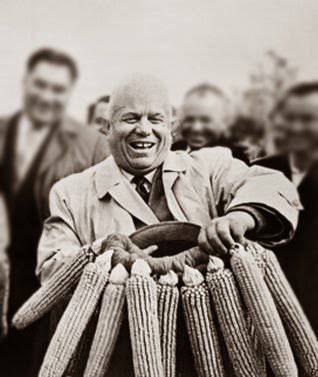
L. M. Kaganovich recalled: “I (Khrushchev - p. Ed.) Nominated him (for the post of CIM secretary - p. Ed.). I thought he was capable. But he was a Trotskyist. And I reported to Stalin that he was a Trotskyite. I spoke when choosing him in MK. Stalin asked: “And now how?” I say: “He is fighting the Trotskyists. Actively speaking. Sincerely fights. " Stalin then: "You speak at the conference on behalf of the Central Committee, that the Central Committee trusts him".
Corn times are significant because a mine is being laid at this time, which explodes in 1991. It is with the Khrushchev Thaw that the image of a fair and brotherly life in the abundant community begins to be replaced by unfounded consumption criteria.
The speech uttered by Khrushchev at the XX Congress about the "Stalin personality cult" deals a powerful blow to the foundation of the Soviet state. The purpose of the speech was to assure that Stalin’s power policy with regard to embezzlers would no longer be carried out, that all this was firmly buried in the past.
“Already by 1953, the Bolsheviks-communists gradually began to lose power in the USSR, and in the highest authorities of the USSR and the highest elite of the USSR, the layer of not just skinmen, but hidden anti-Soviets and anti-communists, gradually began to increase.“ S.
Encouraged by the new opportunities at the post of 1 Secretary of the Central Committee, Khrushchev proposes the idea of “developing the virgin soil”:
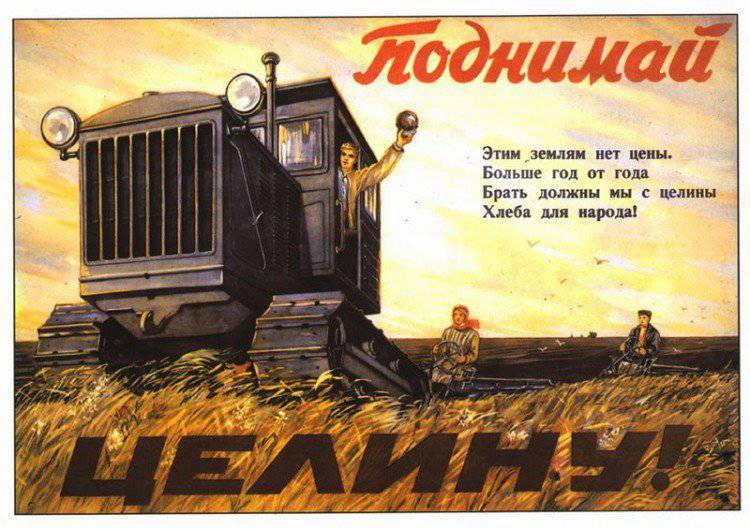
Molotov V.M. 1977. “The virgin lands began to be mastered prematurely. Of course, it was absurd. In this size - an adventure. From the very beginning, I was a supporter of the development of virgin lands on a limited scale, and not in such enormous ones, which forced us to invest huge amounts of money, to incur enormous expenses instead of raising what was ready in the inhabited areas. But otherwise it is impossible. Here you have a million rubles, no more, so give them to the virgin lands or already to the inhabited areas, where there are opportunities? I offered to invest this money in our Non-Black Earth, and to lift virgin soil gradually. They scattered the means - and with this a little bit, and with that, but there is no place to keep the bread, it rots, there are no roads, it is impossible to take it out. And Khrushchev found the idea and rushes like a savras without a bridle! This idea solves nothing definitely, it can help, but to a limited extent. Be able to calculate, count, ask what people will say. No - come on, come on! He began to swing, almost forty or forty five million hectares of virgin otgryz, but it is impossible, ridiculous and not necessary, and if it were fifteen or seventeen, probably would have come more good. More sense. "
And since 1954, the “corn dirk” (as Khrushchev called himself jokingly) is beginning to introduce corn into agriculture everywhere. Corn mania fell into his head because of the success of growing this crop in the United States, where for years they accumulated knowledge of its cultivation.
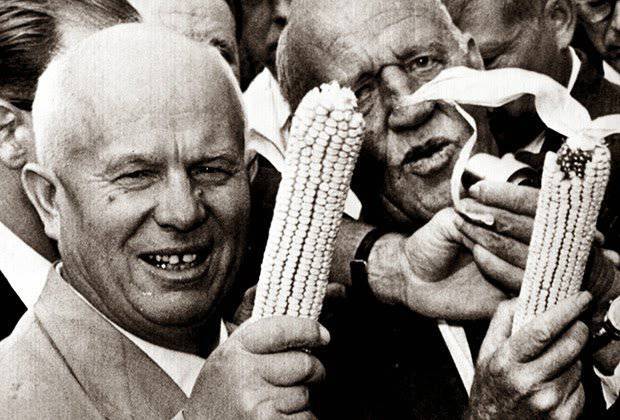
In newspapers, posters and other media start talking about corn. In the year 1956, even, the magazine “Corn”, completely devoted to this plant, is being published. Khrushchev tried his best to impose on the people the opinion that corn was something that our country lacked.
As a result, after sowing large portions of nonchernozem land (where grain was previously grown) with corn, it began to give poor yields, bread and flour began to rise in price (and disappear from sale). And it was necessary to happen that the corn epic intersected with the venture of virgin soil. By 1963, the development of the virgin lands was failed (the mastered soils were depleted, dust storms arose), the country did not receive the grain, the bread was lost from the sale.
For the first time in its history, the USSR was forced to buy grain abroad. Starting from 1963, the Soviet Union will constantly increase grain imports.
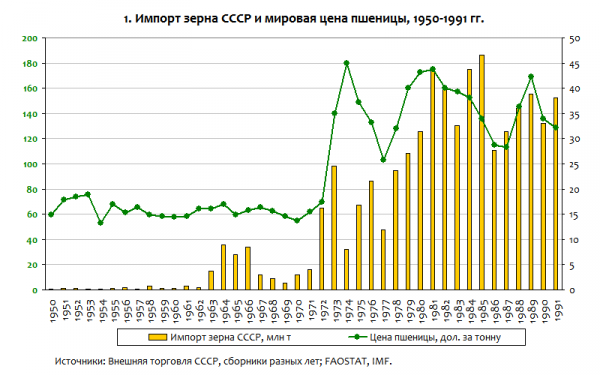
This is just what concerns the grain. In 1957, Khrushchev put forward the slogan: “in three or four years to catch up with the United States in the production of meat, milk and butter per capita.” Justifying it by the fact that: “If we catch up with the United States, then we will release the strongest torpedo under capitalist foundations” (for example, I don’t understand how - ed.).
With this slogan, he disfigured the whole point of a planned economy. Production is not due to the growing needs of the population, there is the greatest madness and blasphemy in relation to the planned-mobilization economy, and in fact is the germ of a market economy, where the release of goods is not tied to the needs.
“In every system there is a leading indicator to which system to strive. In a market economy, this is profit maximization; in a planned economy, the fulfillment of a planned target. And now the fulfillment of the planned task turned into a fetish - at any cost. "
A.I. Belchuk -dok. economical sciences.
It was a kind of catch-up game in which we are always catching up. We had to pursue the chase, sort of, in basic foodstuffs, for which we were lagging behind the US (see picture).
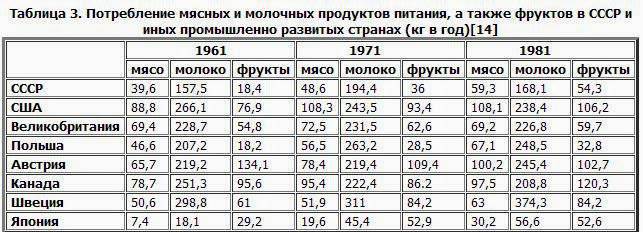
But if you take meat, in our country it was always eaten little. We did not have a "cult of meat" (as it is now), we began to sit down for meat much later.
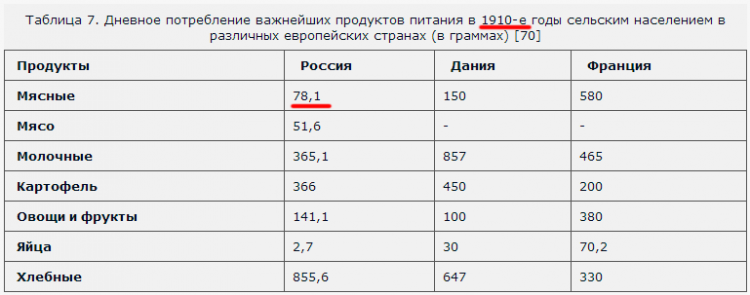
Russia is a Orthodox country and 70% of the population (and if we take into account the remaining fasting denominations, then all 80%) observed the following posts:
Great post (7 weeks)
Petrov Post (4 weeks)
Assumption Post (2 week)
Christmas Post (6 weeks)
and every Wednesday and Friday - fasting days.
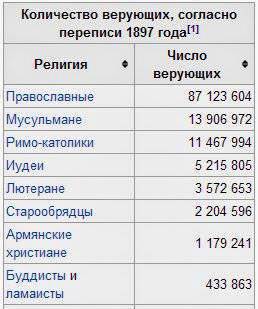
It turns out, almost half a year believers if not meat at all.
Further, “in order for the peasants to work better on the collective farm,” Khrushchev began to reduce, and in some places even select, personal plots in the villages. On what remained of the land, he prohibitively increased taxes, also introduced taxes on bushes and trees, because of which the villagers began to massively cut down everything that grows. When Brezhnev came to power, the peasant situation would soften to a large extent.
In accordance with his slogan, by 1959, Khrushchev is increasing his meat delivery plan.
“They grabbed and drove into the slaughterhouse everything that could move on four legs: pregnant cows (pregnant, pp. Ed.) And pregnant pigs (sows, pp. Ed.), Calves and piglets, which would still grow and grow. The collective farmers were buying up on voluntary-compulsory principles so memorable to the people that they had bones, regardless of what was on the bones. ”
Anatoly Strelny - writer.
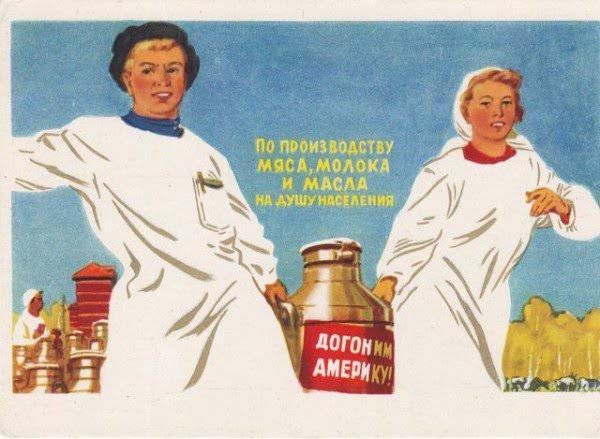
The peasants, in order not to sell their cattle, began to slaughter it en masse, which significantly reduced the livestock and poultry population.
To increase milk production, it was decided to buy dairy cattle from the population.
"The people were indignant and wept that the cows were taken away, and they did not give milk, although they promised, they take everything out to the plan."
Anatoly Strelyany - writer
“Stubbornly seeking ways to shame America, Nikita Khrushchev ordered to buy all their horned living creatures from the collective farmers without any hesitation. But with the onset of cold weather, it turned out that the collective and state farms were not ready for the placement and maintenance of the purchased cows, and they had to be partially slaughtered. Since then, there have been no cows or calves in the village. ”
Yevgeny Nosov - writer.
Due to the fact that the calves were not allowed to grow, by the 60-th years the number of herds began to decrease, the production of meat began to fall. In the wake of the meat began to fall in the amount of milk. In the shops for meat and milk began to line up the queue. Please note that before 60-s there were no huge queues or a massive shortage of goods on the shelves. I will cite as an example a photograph of my grandmother, 1958-59's.
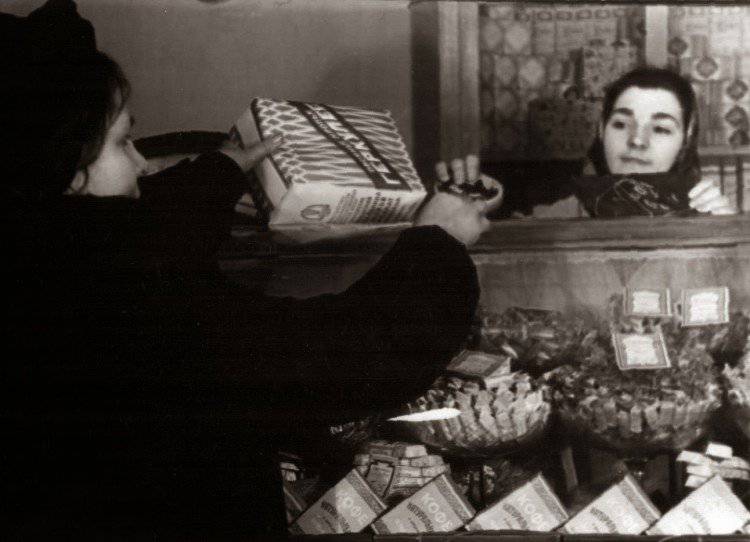
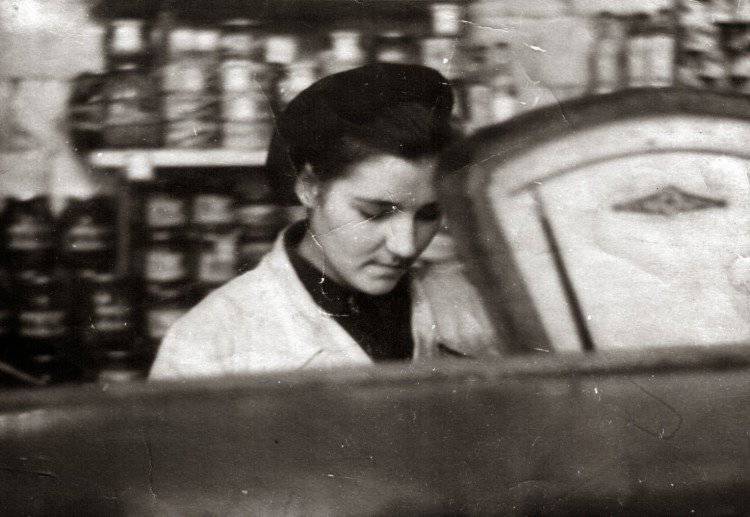
In 1961, Khrushchev stupidly (and someone sees a malicious intent here) is pursuing a monetary reform, replacing the “Stalinist footcloths” with “Khrushchev's candy wrappers”, as a result of which the value of the ruble is halved.
Tired of experimenting, they overthrow Khrushchev in 1964, LI takes over as head of state. Brezhnev.
Khrushchev, he is a shoemaker in matters of theory, he is an opponent of Marxism-Leninism, this is the enemy of the communist revolution, hidden and cunning, very veiled ... No, he is not a fool. And what for the fool went? Then the last fools! And he reflected the mood of the overwhelming majority. He felt the difference, he felt good.
Molotov V.M. 1972
What is remarkable for us the time of "thaw"?
It was during these years that the bourgeoisie began to revive from the hands of Khrushchev, the bourgeoisie, not full of life for Stalin, who want to live at the expense of the people, without investing their labor in anything. Same as today's oligarchs, who did get to the "trough".
But what a bad luck, with a planned economy there is practically no opportunity to accumulate capital. Cash circulation in the country is minimized.
What to do in such a situation hobugs? Everything and everywhere is controlled by the state.
However, as practice has shown, all the inaccessibility of a planned economy is only apparent, there remains a sphere in which cash and commodity relations still exist in cash - this is a sphere of trade. It is here that all destructive elements begin to flow.
If we add Khrushchev's speech to all this at the 20th Congress, at which he assured everyone that the repressions would not happen again, then this would create a fertile ground for the further development of the elements we mentioned above. Metastases begin to spread throughout the body of the state.
I hope now it has become clear to everyone why Stalin wanted to gradually withdraw money from domestic trade relations?
Stagnation.
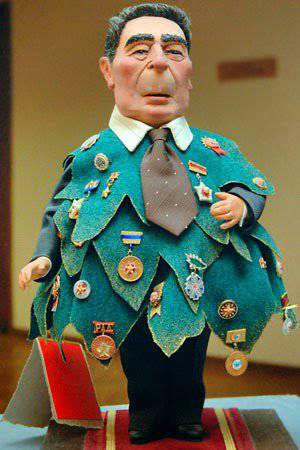
"The economy must be economical."
L.I. Brezhnev
During the reign of Brezhnev, the neo-bourgeoisie is gaining momentum and taking deep roots. It separates and becomes a separate shadow class. It is because of this class and its inordinate greed that all problems will arise.
Now, in fact, to the very stagnation. The term "stagnation" is very late. For the first time it was delivered by MS Gorbachev at the XXVII Congress of the CPSU in 1986 year (after the death of Brezhnev). In many ways, the term is not fair, since under Brezhnev all spheres of the economy continued to develop steadily, but in some ways it reflects the situation of those years - under Brezhnev, serious progress in power stopped, officials lingered in their places until moldy old age. I would call this time not “stagnation” but “backbone,” it would be more accurate.
Sitting on the ground, people became overgrown with connections and lucrative acquaintances (this was what Stalin tried to prevent, cleaning the device every 5 years). That's it, for the inaction of Brezhnev and loved in the "top".
How did the policy pursued by Leonid Ilyich affect the deficit?
It was in Brezhnev times that store shelves begin to really empty. One or the other begins to disappear (as with buckwheat in Moscow in August 2010 and the loss of sugar in stores in Moscow, also somewhere in 2010). People agitated by the constant disappearance of one or the other goods begin to be purchased for the future (sometimes for a whole month ahead), since the prices for food in the USSR were low compared to today. Because of such predatory purchases and high purchasing power of citizens, the store shelves were quickly emptied and could not be replenished again, since at the very first delivery all the goods were suddenly swept away from the store shelves.
An excerpt from the book "Brezhnev without lies." A.M. Burovsky:
“The cost of bread ranged from 5 kopecks for a butter roll weighing 330 grams to 16 kopecks for a loaf of black or 22 kopecks for a challah braid. With an average salary in 66 rubles in 1961 and 120 rubles in 1981, this money was not that small ... They were intangible. There was always bread, for all segments of the population, and plenty. Bread was so affordable and cheap that in the villages, pigs and chickens were fed to households with baked bread from the shops. Such bad people were ashamed and scolded, cartoons in the press were painted on them ... Of course, it did not help. ”
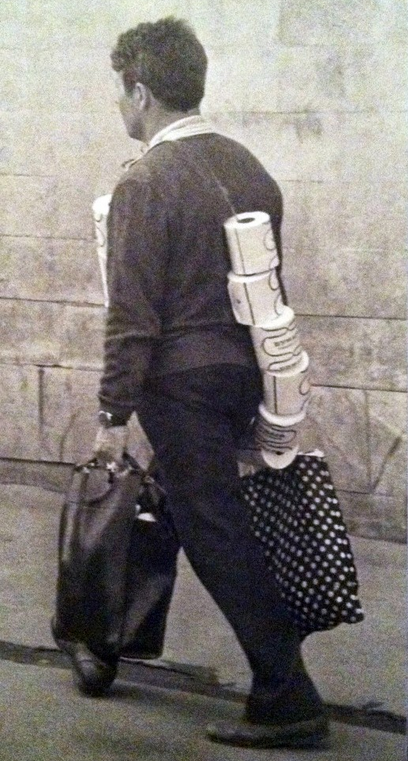
For example, try to reduce food prices three times today (and prices for some products in the USSR were even lower) and I’ll see how the shelves in the stores will remain full. Today’s abundance is just an illusion (and illusions are precisely inherent in capitalism with its market economy), since most of the goods, because of their high prices, are simply inaccessible to the majority of the population. To whom it is interesting, I can independently conduct a comparison of the level of prices and wages in Russia and the USSR, but I will not touch on this topic any more so that the article does not turn into a book in terms of volume.
“Already, a substantial part of our fellow citizens live in conditions of such a shortage of money that the shortage of goods with money is perceived quite differently.”
S.E. Kurginyan.
Is it possible in this case to talk about the deficit?
To answer this question you need to find out what the deficit is:
“Deficiency is a mismatch between product supply and demand.”
Now compare with your situation. Yes, there was nothing on the shelves of the stores, but people had full refrigerators, no one was hungry, the goods reached the consumer completely, which means that the demand was satisfied. It turns out there was no shortage of nebilo, but there was a simple speculation.
Traders sold most of the goods coming to them to the market, leaving the worst products in stores for a report. They tried to hide the product, hold it and sell more expensive from under the floor. So the shadow market was born, the volume of which, by the middle of the 80-s, was no less than 30% of the national income of the USSR.
“Jacob Brezhnev (the brother of Brezhnev — p. Ed.) Helped to get any deficiency from drugs to dachas. He was sent to special shops for a nomenclature with dubious personalities who bought everything and then resold it to speculators. The proceeds went for a walk in restaurants. ”
Andrei Burovsky - a writer.
It was an artificial commodity deficit that made it possible to profit from the difference in prices in a planned economy. Neither the state as a whole, nor the population of the country were interested in the so-called deficit, as it created social tension and increased the material costs of the state to combat this problem. The deficit was in the hands of only the "shadow".
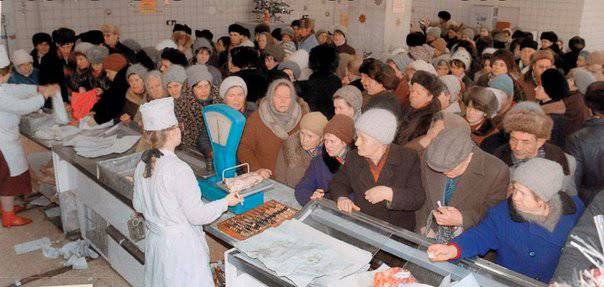
An excerpt from the book "Brezhnev without lies" A.M. Burovsky:
“Foreigners often believe that real hunger reigned in Russia during the“ years of stagnation. ”Some of the young people think the same way, having failed to catch the“ years of stagnation ”and knowing about them only by hearsay. So, there was no famine in any sense of Words. Almost everyone had foodstuffs, the question was what exactly and at what price.Who got quality products in a special distributor, who bought not very high-quality products “for the population” in stores, defending huge queues, overpaying in “cooperative” stores. Who bought the same products "to pull" and endured from the back door. And who was bursting in queues of other cities, arriving in green, smelling sausage electric trains. ”
Andropov.
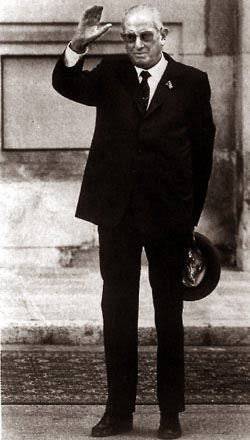
Yu.V. Andropov is the only one who saw the full scope of the parasitism that unfolded and was not afraid to speak out against the massive dominance of corruption, which at that time had already covered everything. He begins to carry out mass purges: in the 15 months, the 18 Allied Ministers and the 37 First Secretaries of the Regional Committees were replaced. This has not happened since the 30's. Not surprisingly, almost a year later, Andropov dies from kidney failure.
Chernenko.
“Why can't the Central Committee finish the chess game? Because e-two go there - e-two. ”
Joke 1984 of the year.
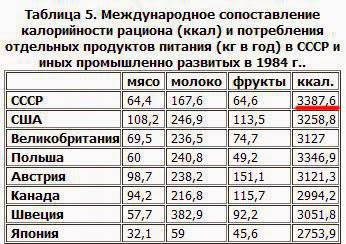
After the death of Andropov, the “parasites” put at the head of the country the 73-hletney, already with one foot in the grave, Chernenko, whose leitmotif of the reign is: “no change”. He turns off all corruption cases initiated by Andropov. “Zasidentsy” wanted to hold out in their places as long as possible, but Chernenko was already old and he was quickly dying. He is replaced by a young and promising MS. Gorbachev.
“She herself broke up.” The truth about the deficit in the USSR
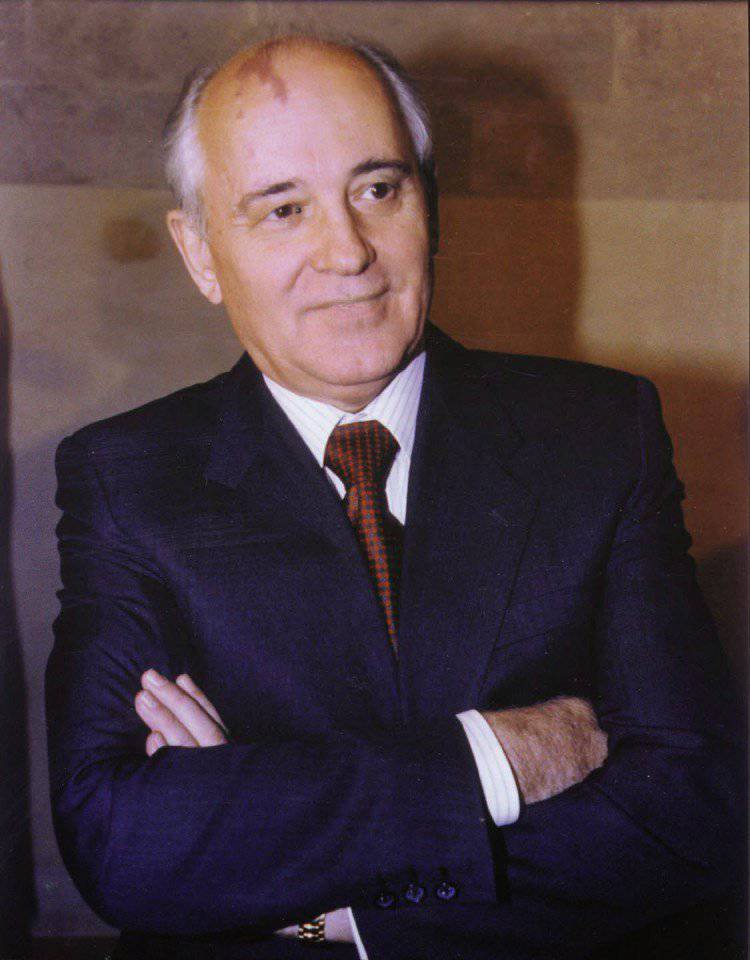
The last of the Soviet Unions - Gorbachev's USSR.
Years of adjustment. Citizens are trying to move from village to city to the maximum, cities expand, and villages rot. Everything great and beautiful has already been forgotten and much has been spat upon, a cult of money and charity has been imposed on people, on sly. Something like this can be characterized by the time of Gorbachev's rule.
Evil has snuck into the very core of our Country, overwriting all the most sacred with its dirty little hands, but the country is still alive, its industry continues to operate and operate at a very high, competitive level. It was for the latter, the decisive blow to the economy, that the bourgeois (Stalin often called them "Zionists") put Mikhail Sergeyevich Gorbachev at the head of the country, because the overgrown tumors became closely within the framework of the USSR.
In January, 1987, with yet another light hand, foreign trade restrictions are lifted - these are limitations due to which the internal market of the Soviet Union existed, since all prices within the country were many times lower than world prices. Everything starts to be taken out of the USSR, starting with washing machines and refrigerators, ending with pans, toilet paper and toothpaste with soap. Export is mainly carried out through Poland.
At the time of the restructuring of the USSR produced 21% of the total world production of butter, but there was no oil in the stores. Where did it go? And it appeared in huge quantities abroad. Interesting really?
21 July 1989 - all restrictions on the export of gold from the USSR are removed. He, in huge quantities, is beginning to be supplied to the domestic market of the country, in the form of various jewelry and products, then speculators, without any problems, bought it at scanty domestic prices (relative to world prices) and exported abroad, selling it there at global prices. prices.
Also, Gorbachev is increasing the national debt, ostensibly for the purchase of food abroad. To answer the question, where is Gorbachev doing this money, still nobody can.

By the end of 80, the beginning of 90, everything disappeared in the stores.
26 December 1991 of the USSR ceased to exist.
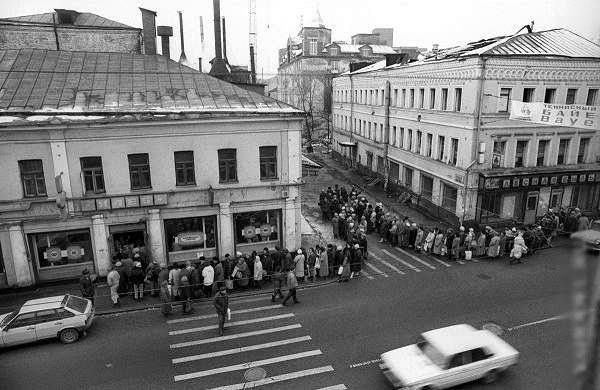
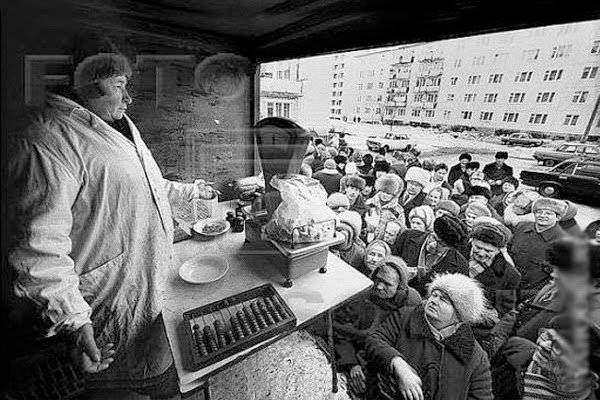
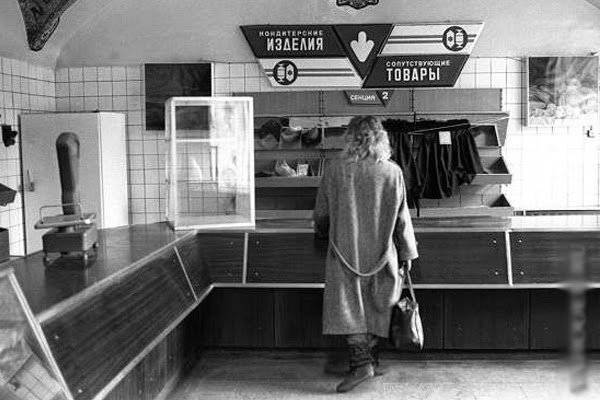
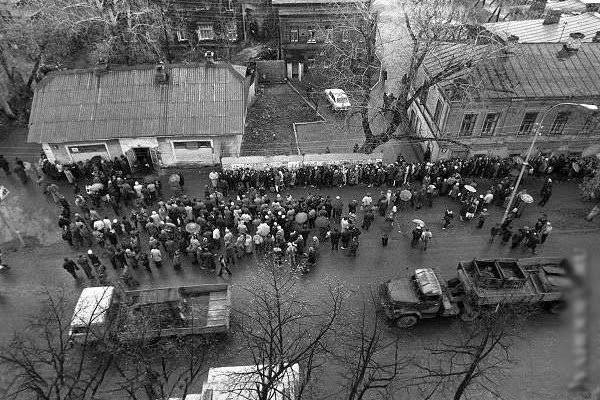
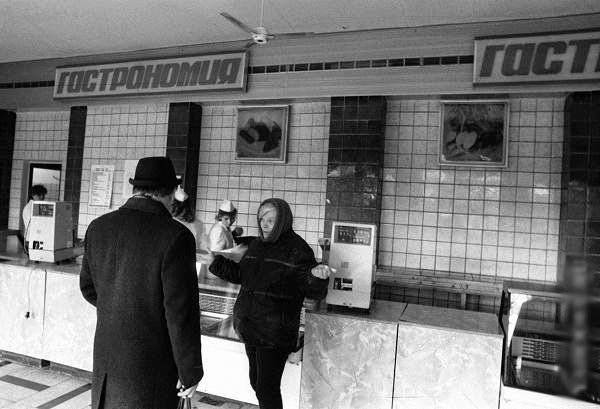
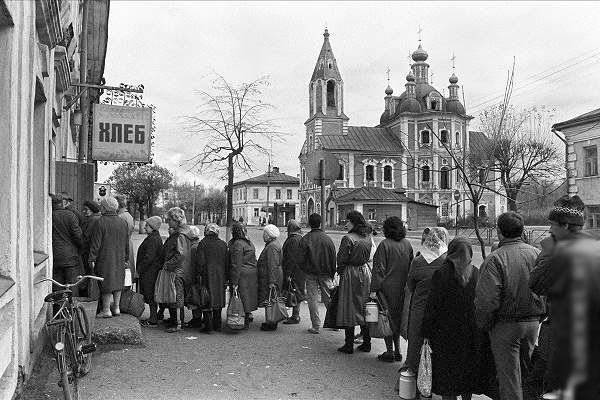
More photos ...
An excerpt from the speech of Margaret Thatcher. Houston, 11. 1991:
«The Soviet Union is a country that posed a serious threat to the Western world. I'm not talking about a military threat. It, in essence, was not. Our countries are fairly well armed, including nuclear weapons. I mean the economic threat. Thanks to a planned policy and a peculiar combination of moral and material incentives, the Soviet Union managed to achieve high economic indicators. The percentage of gross national product growth was about two times higher than in our countries. If we take into account the enormous natural resources of the USSR, then with the rational management of the economy, the Soviet Union had very real opportunities to oust us from world markets. Therefore, we have always taken actions aimed at weakening the economy of the Soviet Union and creating internal difficulties for it.»
Here is a brief review on the topic of food shortages in the USSR, limited by the article. As can be seen in different years, the country faced various economic problems and tried to solve them as far as possible. Sometimes decisions were successful, sometimes not. Therefore, each reader will have to decide for himself - to believe the stories of the liberals that the planned economy is responsible for all the troubles (which, by the way, are still afraid of “zapadentsy”) or not.
“I first sat and pondered: Why did it take to demonize the planned economy? And then I understand that all the same, probably because now we have been forced to return to the basics of planning for several years. We plan the state budget not for a year, but for three years. We are talking about the need for a mobilization-modernization economy, because without a qualitative leap, we cannot get out of the quagmire where the country is plunging. And then I understand that shooting at a planned economy is an attempt to destroy the chance for the revival of the country. ”/ С.Н. Baburin - Rector of the RGTEU. "
Information